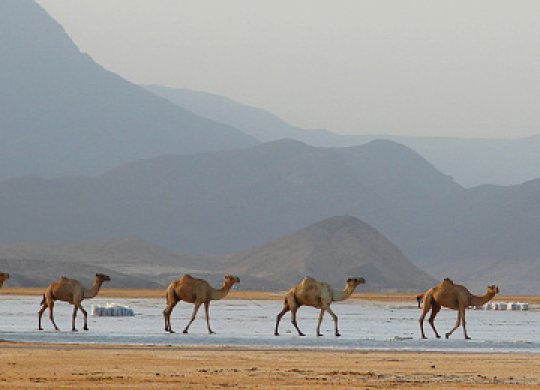goldengaterestaurantphoenix.com – Nestled in the Horn of Africa, Djibouti is a country that boasts a unique blend of cultures, breathtaking landscapes, and a strategic location at the crossroads of Africa and the Middle East. Despite its potential, Djibouti’s tourism industry remains largely untapped, with the country receiving only a fraction of the tourists that visit neighboring countries. This article explores the untapped potential of Djibouti’s tourism industry and the steps that could be taken to harness it.
Geographical Diversity and Natural Beauty
Djibouti’s landscape is a tapestry of diverse ecosystems, from the arid Danakil Desert, known for its otherworldly landscapes and geothermal features, to the lush forests of the Goda Mountains. The country’s coastline along the Gulf of Aden and the Red Sea offers pristine beaches and a rich marine life, making it a haven for snorkeling and diving enthusiasts. The Lake Assal, the lowest point in Africa, surrounded by salt flats and volcanic formations, is another natural wonder that awaits exploration.
Cultural Heritage and Historical Sites
The country’s strategic location has made it a melting pot of cultures, with influences from Africa, the Middle East, and Asia. This cultural diversity is reflected in Djibouti’s architecture, cuisine, and traditions. Historical sites such as the ancient port city of Alula and the French colonial buildings in Djibouti City offer glimpses into the country’s past. The nomadic Afar and Issa communities, with their rich oral traditions and camel caravans, provide a window into a lifestyle that is fast disappearing in the modern world.
Challenges and Opportunities
Despite its potential, Djibouti faces several challenges in developing its tourism industry. Infrastructure, including accommodation, transportation, and tourist facilities, is limited. Political instability in the region and security concerns have also deterred tourists. However, these challenges present opportunities for Djibouti to develop a sustainable tourism model that benefits the local population and preserves the country’s natural and cultural heritage.
Steps Toward Development
To tap into its tourism potential, Djibouti must invest in infrastructure and marketing. Improving road networks, building eco-friendly accommodations, and developing sustainable tourism practices are essential. Promoting Djibouti as a destination for adventure tourism, cultural experiences, and ecotourism can attract a niche market. Collaboration with international tour operators and participation in travel fairs can raise the country’s profile on the global tourism map.
Conclusion
Djibouti’s tourism industry is a diamond in the rough, with its unique landscapes, rich cultural heritage, and strategic location offering a wealth of opportunities. By addressing the challenges and leveraging its strengths, Djibouti can develop a thriving tourism industry that benefits the local economy and preserves the country’s natural and cultural treasures for future generations.
